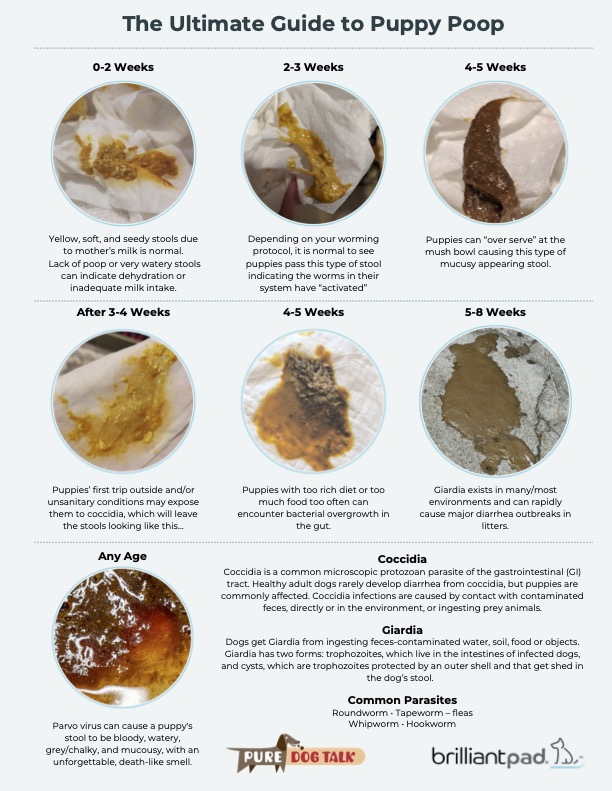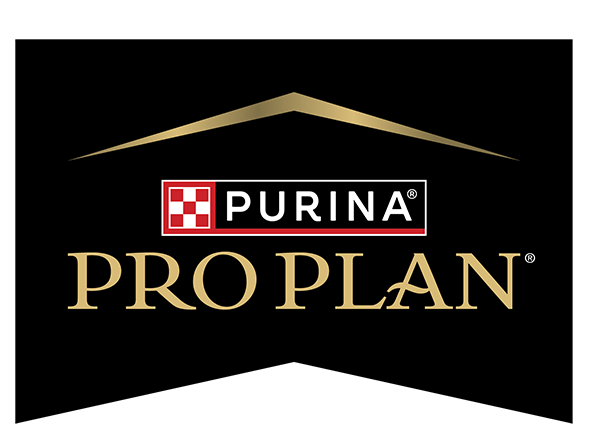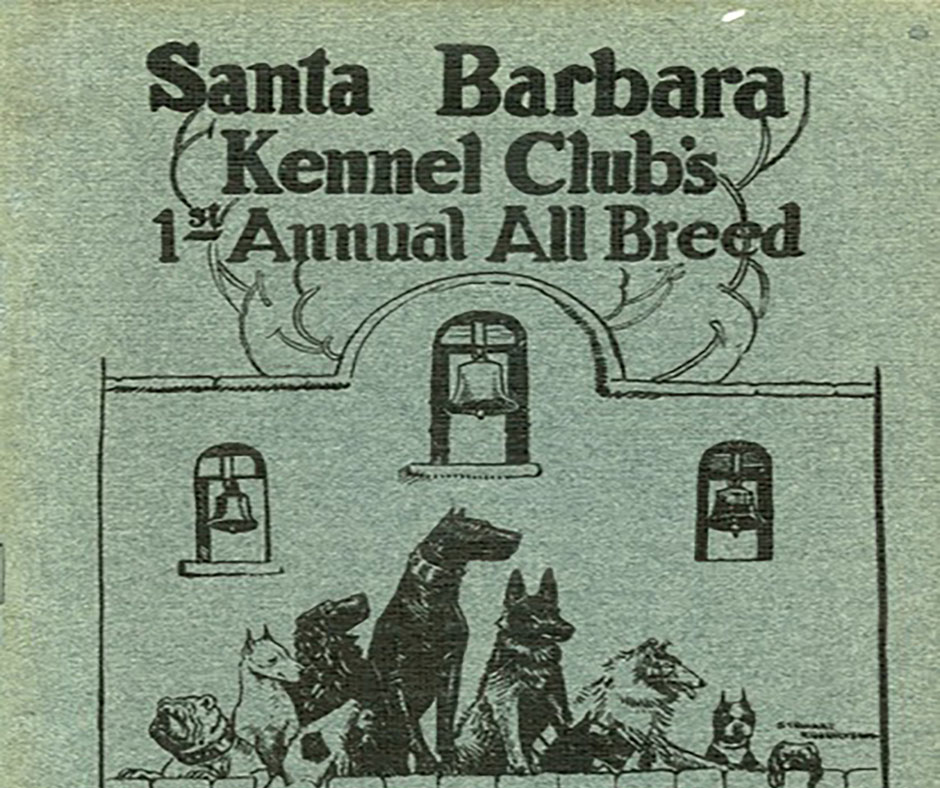637 – What Your Puppies’ Poopy Tells You

What Your Puppies’ Poopy Tells You
Dr. Marty Greer, DVM joins host Laura Reeves for an extended conversation about puppy poopy. Color, consistency, contents and coating of the puppy’s stool give detailed information about its gut health. They also discuss prevention and treatment of common intestinal upset.
“A yellow, softened, seedy stool is absolutely normal (for the first two weeks),” Greer said. “It’s not that they’ve eaten anything that shouldn’t be in there. That’s just normal milk curd being digested and the normal color with the digestive enzymes.”

Puppy stool samples and what they tell you, at a glance.
To watch the entire presentation, with photos, click the link HERE.
Intestinal parasites
“If a bitch ever had roundworms when she was a puppy or ever had hookworms when she was a puppy, those will encyst in her muscles and they will reactivate during the stress of pregnancy and lactation and migrate,” Greer said.
“Roundworms migrate through the placenta into the puppies. So, this is how puppies are born with intestinal parasites, is they’re already born with them before they are hatched, they come out, and hookworms will migrate through the milk and into the puppies.
“So this is how we end up with parasites that are going to cause problems in puppies. And they typically will start to become an issue when the puppies are right about three weeks of age. So just three to four weeks, just about the time you’re starting to wean, about the time you’re trying to get them on to solid food, they get sick, they feel puny, they have a belly ache, they don’t feel good, you end up going to the vet.
“Sometimes those stool samples are negative even if the parasites are there because the parasites need to be at least three weeks old to produce the eggs that it takes for them to see under the microscope.”
Worming pregnant dams with Fenbendazole (Pancur) is the only guaranteed way to raised puppies not born with intestinal parasites.
“So Panacur, you start at day 42 of the pregnancy,” Greer said. “And you give the dewormer every single day from day 42 of the pregnancy until the puppies are 14 days old. That is five weeks. The label says three days, and I understand the label says three days, but it is a five -week protocol. It is an off -label use, technically, but I can say that because I’m a veterinarian and I’m allowed to say those things. This protocol was published for the first time in the early 1980s.
“We’re giving 50 milligrams per kilogram once a day (to the dam for five weeks). If you give the suspension, not the tube paste, but the suspension, the liquid stuff that you shake up. That’s given at one cc per four pounds of body weight. Safeguard, Panacur, fenbendazole is all the same thing. So if it’s a 10 % solution, it’s one cc per four pounds of body weight. Or you can use the granules. Now granules come in little packages, but they also come in a one pound tub, so there are very cost effective ways for you to get this. I’ll tell you the bitches don’t like the medication given daily, but you know what? I don’t like worms in my washing machine and in my puppies, so I’m going with, I’d rather deworm the bitch.”
Our Valued Corporate Sponsors:
Our Esteemed Advertisers:
Our In-Kind Supporters:
KNOWLEDGE IS POWER — FRANCIS BACON
When you become a patron of Pure Dog Talk you’ll tap into an exclusive community of experts to help you and your dog be blue-ribbon best at whatever you do with your purebred dog! Your support helps keep the MP3's rolling at Pure Dog Talk!
As a supporter, you’ll immediately gain access to the weekly Pure Pep Talk SMS, Pure Pep Talk private Facebook group, and priority emails. Patrons can choose to level up to the After Dark Zoom and a Patrons Digital Badge for their website— even a private counseling session with Laura on any topic.

DON'T MISS AN EPISODE!!












